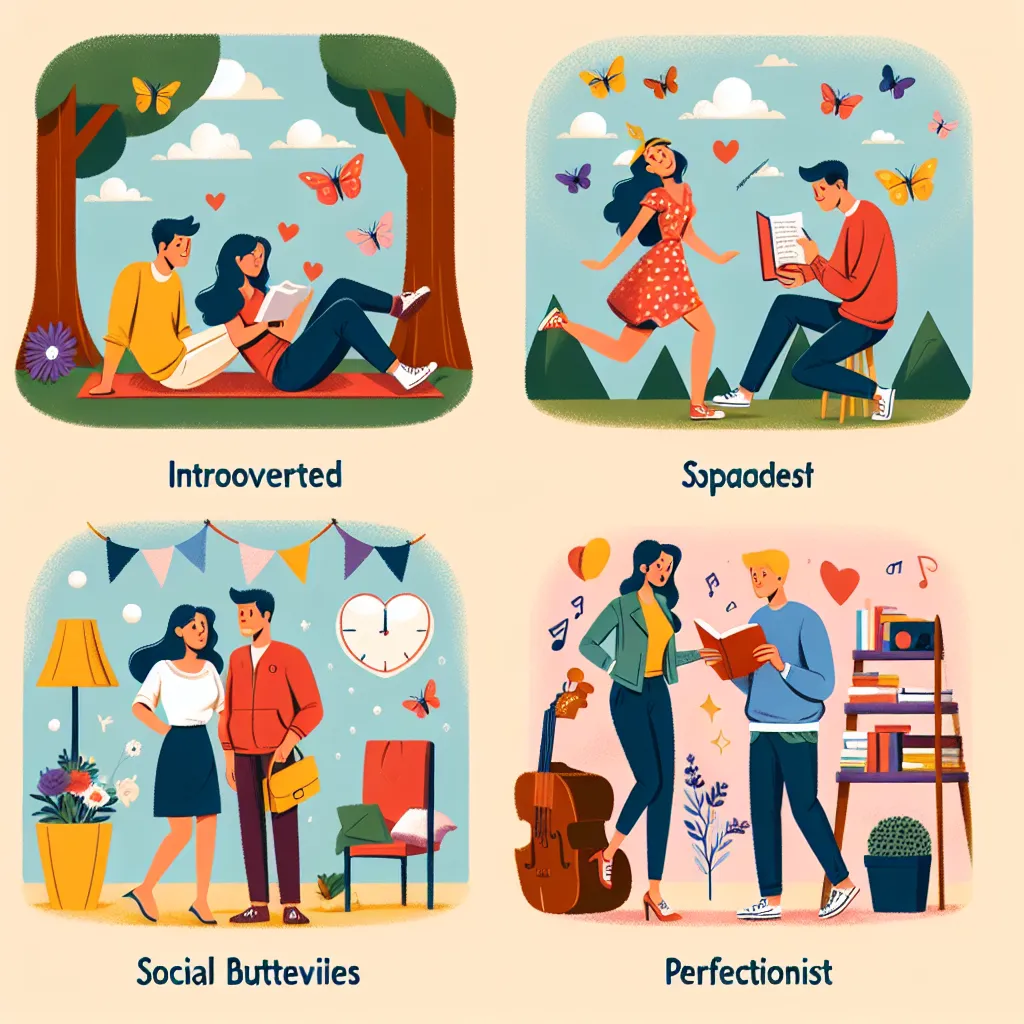Understanding the dynamics of how different personality types express and experience love is key to nurturing fulfilling and durable relationships. Relationships, much like individuals, are unique and complex. Regardless of whether you subscribe to the Myers-Briggs Type Indicator (MBTI), the Enneagram, or any other personality classification system, realizing that each personality type has its own love language and relationship needs can be a critical tool for building meaningful connections.
The journey of exploring how personality types function in love begins with the recognition that personality influences our preferences, communication styles, and the way we interact with our partners. Let’s dive into the world of personality types in love and uncover the intricacies of relationship dynamics.
### The Influence of Personality on Love and Relationships
Love is a universal emotion, yet how we show it and what we expect in return can be deeply influenced by our personality. An understanding of these differing needs and expressions can guide us through the labyrinth of human emotions and interactions in intimate relationships.
Personality typologies, such as the MBTI, classify individuals into distinct types based on preferences in perception and judgment. These preferences shape how a person loves and wishes to be loved. Introverts might crave deeper, more private expressions of affection, whereas extroverts might appreciate more frequent and public expressions.
### MBTI Personality Types in Love
The MBTI outlines 16 distinct personality types, each with its own unique approach to love and relationships.
#### Introverted Personalities (Ixxx)
Introverted types often seek deep, meaningful connections. They may not fall in love quickly, but when they do, it’s with a profound intensity. Introverts typically require trust and emotional intimacy before fully opening their hearts.
##### INFPs (The Mediators)
INFPs are idealistic and seek authentic, harmonious relationships. They often show love through creativity and understanding, and desire partners who can appreciate their rich inner lives and support their dreams.
##### INTJs (The Architects)
INTJs value intellect and independence in partnerships. Always strategizing, they show love by helping their partners achieve their goals and by meticulously planning a shared future.
##### ISFJs (The Protectors)
ISFJs show love by tending to their partners’ needs and creating a comfortable, nurturing environment. They thrive with partners who appreciate their thoughtfulness and reciprocate with loyalty and support.
##### ISTPs (The Virtuosos)
ISTPs are spontaneous and enjoy the thrill of the moment, often showing love through shared adventures. They crave partners who respect their need for freedom and can match their zest for life.
#### Extroverted Personalities (Exxx)
Extroverted types generally enjoy expressing love openly and thrive on interactions with their partners. They can fall in love more quickly and seek relationships where their enthusiasm is reciprocated.
##### ENFPs (The Champions)
ENFPs are passionate and imaginative, often integrating playfulness into their relationships. They show love through inspiration and devotion, searching for partners who can match their emotional depth.
##### ENTJs (The Commanders)
ENTJs are determined and strategic, often showing love by planning a future with their partner and taking charge of solving any problems that arise. A partner who respects their ambition and leadership is key.
##### ESFJs (The Caregivers)
ESFJs show love through acts of service and affection, doling out care to ensure their partner’s happiness. They yearn for appreciation and a partner who values their commitment and generosity.
##### ESTPs (The Entrepreneurs)
ESTPs are energetic and love excitement, showing affection through shared experiences and laughter. They seek partners who can keep pace with their dynamic lifestyle and offer unwavering support.
### The Five Love Languages and Personality Types
In his book, “The 5 Love Languages,” Dr. Gary Chapman outlines five distinct ways people express and experience love: Words of Affirmation, Acts of Service, Receiving Gifts, Quality Time, and Physical Touch. Each personality type may have a natural inclination towards one or more of these love languages.
For instance, an ISTJ might cherish Acts of Service, finding love in the little things their partners do to ease their day. On the other hand, an ENFJ might prefer Words of Affirmation, thriving on verbal acknowledgements of love and appreciation.
### The Importance of Adaptability in Relationships
Once you understand your partner’s personality type and the corresponding love language, the real work begins: adaptation. Successful relationships often require us to stretch beyond our natural preferences to meet our partners where they are. An INTP might learn to offer Words of Affirmation to their ESFJ partner, while the ESFJ might understand the INTP’s need for solitary Quality Time.
Adapting does not mean changing who you are but rather expanding your love expressions to include the needs of your partner.
### Navigating Conflict According to Personality Type
Handling conflict is another area where understanding personality types can be tremendously helpful. A perceiving type (xxPx), who tends to be more flexible and spontaneous, might approach a disagreement with a go-with-the-flow attitude. In contrast, a judging type (xxJx), who prefers structure and decisiveness, might seek swift resolution and concrete steps to avoid a similar issue in the future.
Acknowledging and honoring these differences can turn conflicts into opportunities for growth rather than destructive forces in a relationship.
### Conclusion
Every personality type has unique qualities that they bring to a relationship. Understanding these inherent traits and the various ways in which they influence the dynamics of love can result in more enriching and stronger relationships. When partners acknowledge, appreciate, and adapt to each other’s personalities, they pave the way for a more harmonious and enduring romance.
In an age where online personality tests and relationship advice are just a click away, taking the time to understand your and your partner’s personality type could be the key to unlocking a deeper connection. Whether it’s aligning love languages, navigating conflict, or simply learning to appreciate each other’s quirks, the study of relationship dynamics is a welcome addition to the toolkit of lovers everywhere.



Leave a Comment